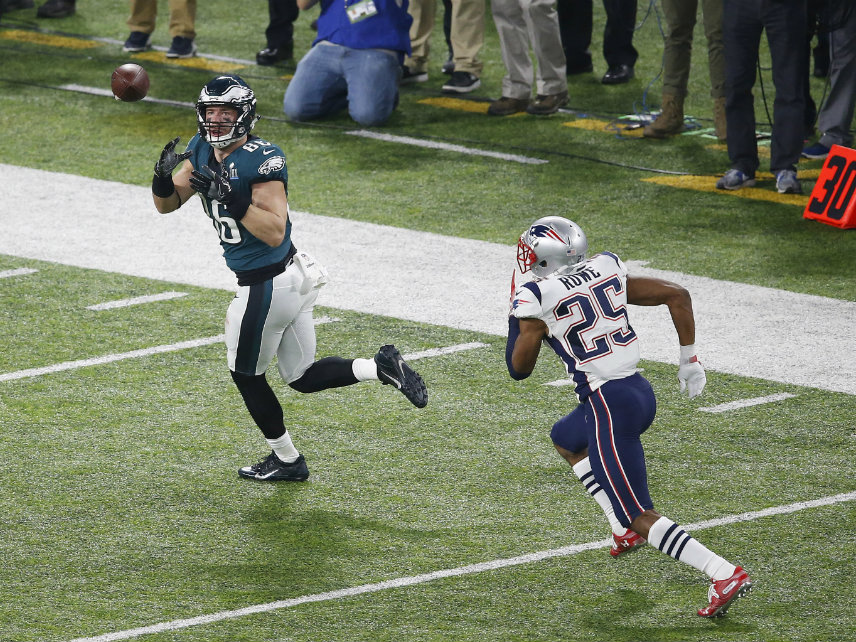The Philadelphia Eagles Won the Super Bowl, but They'll Lose on Tax Day
The tax man always wins, and professional athletes take a bigger hit than most.

The Philadelphia Eagles won the Super Bowl when they defeated the New England Patriots last night. But it's the tax man who really always wins.
Because the game was played in Minneapolis, the $112,000 bonuses paid to each player on the winning team (and the $56,000 bonuses paid to the losers), will be taxable in Minnesota, which has some of the highest personal income tax rates in the country. Each member of the Eagles will end up paying about $7,200 of their Super Bowl bonus to the state of Minnesota. That comes on top of an estimated $23,500 federal tax hit for each of the winning player's shares.
And that's just the start. Minnesota also imposes a so-called "jock tax" on athletes that visit the state for practices and games. Income earned during the days leading up to Sunday's big game will be taxed at the state's top marginal rate of 9.85 percent. Only California has a higher jock tax, and even states with no personal income taxes—like Texas and Florida, both frequent Super Bowl hosts—still hit up professional athletes, coaches, and team staff with special taxes.
Robert Raiola, chief of the sports and entertainment group at PKF O'Connor Davies, a New York–based accounting firm that specializes in working with athletes, tells Philly.com that most players on the two teams would have spent about a week in Minnesota during the lead-up to the Super Bowl. That works out to about 3 percent of their total working time for the year, and their tax bills will vary depending on how much they earned during the season. Raiola told Time that Patriots quarterback Tom Brady, who earned about $15 million in salary this year, could end up owing Minnesota roughly $43,000.
While stars like Brady can make tens of millions of dollars annually in salary alone (and yet more in paid endorsements), the average NFL player makes $1.9 million—considerably less than the average in America's other major sports. Still, that works out to more than $3,300 in state taxes owed simply for spending a week in Minnesota. And of course those players still owe taxes in Massachusetts and Pennsylvania, along with every other state where they played a road game during the season. Tennessee is the only state without a jock tax.
You may find it difficult to feel bad about the tax hurdles that come with being paid a lot of money to play a game for a living. Even so, jock taxes are fundamentally unfair, targeting income earned from a handful of high-profile professions.
"The problem I have is [visiting athletes] are not receiving benefits that other people in that state receive who are paying the tax. It's unfair that the athletes get singled out," Illinois tax specialist Mark Goldstick told Stateline in 2014. "If an attorney makes a million-dollar deal in that state, they are not made to pay the tax, they are not pursued. But the fact that an athlete was in the state is in the box score."
Chris Stephens, a law clerk with the D.C.-based Tax Foundation, writes that states like to tax visiting pro athletes because they are perceived to be easy targets for taxation. Their schedules are published in advance, some have very high incomes, and as non-residents, they cannot vote to voice their displeasure with the tax.
While some teams in low-tax states can use their location to attract highly sought after free agents, players and team staff have no choice about where they play road games. And no one is going to turn down an opportunity to play in the Super Bowl because of the potential for a multi-thousand-dollar tax hit. But all those special tax bills might help explain why more than three quarters of professional football players find themselves in financial difficulties within a few years after retirement.


Show Comments (58)